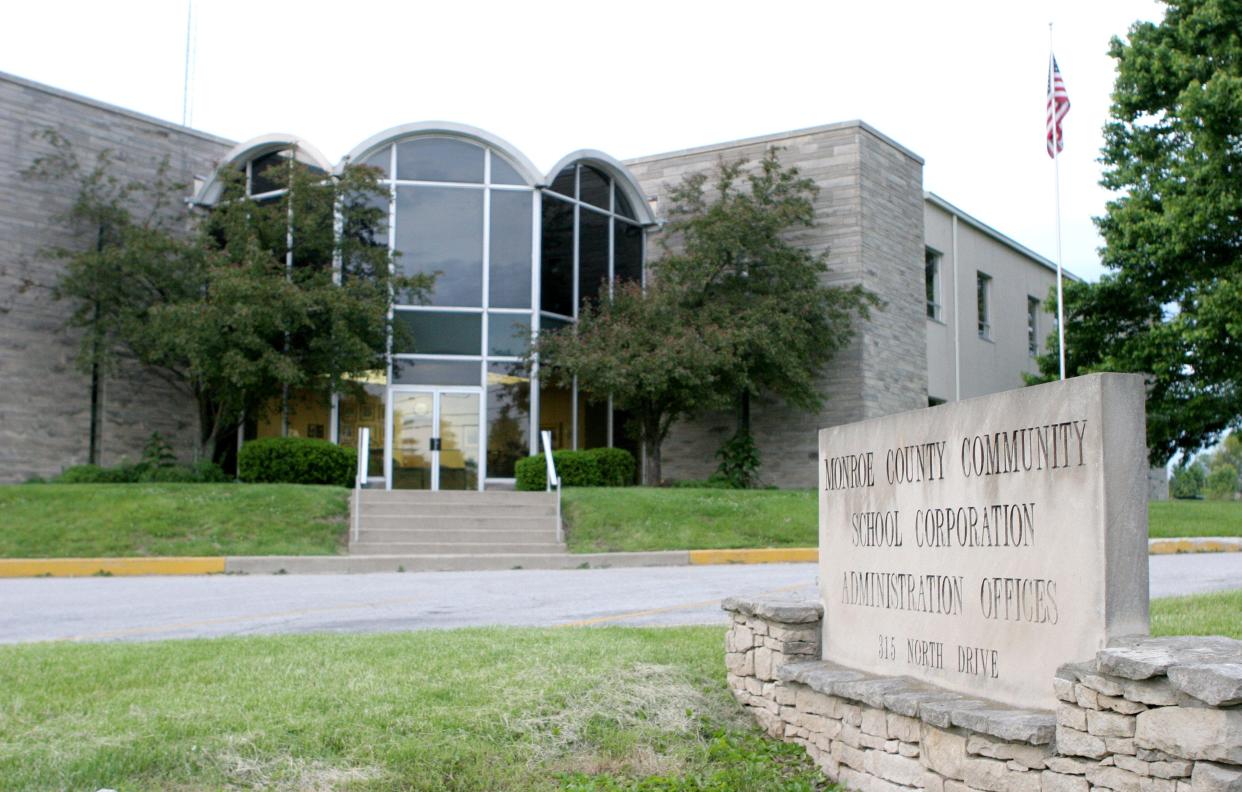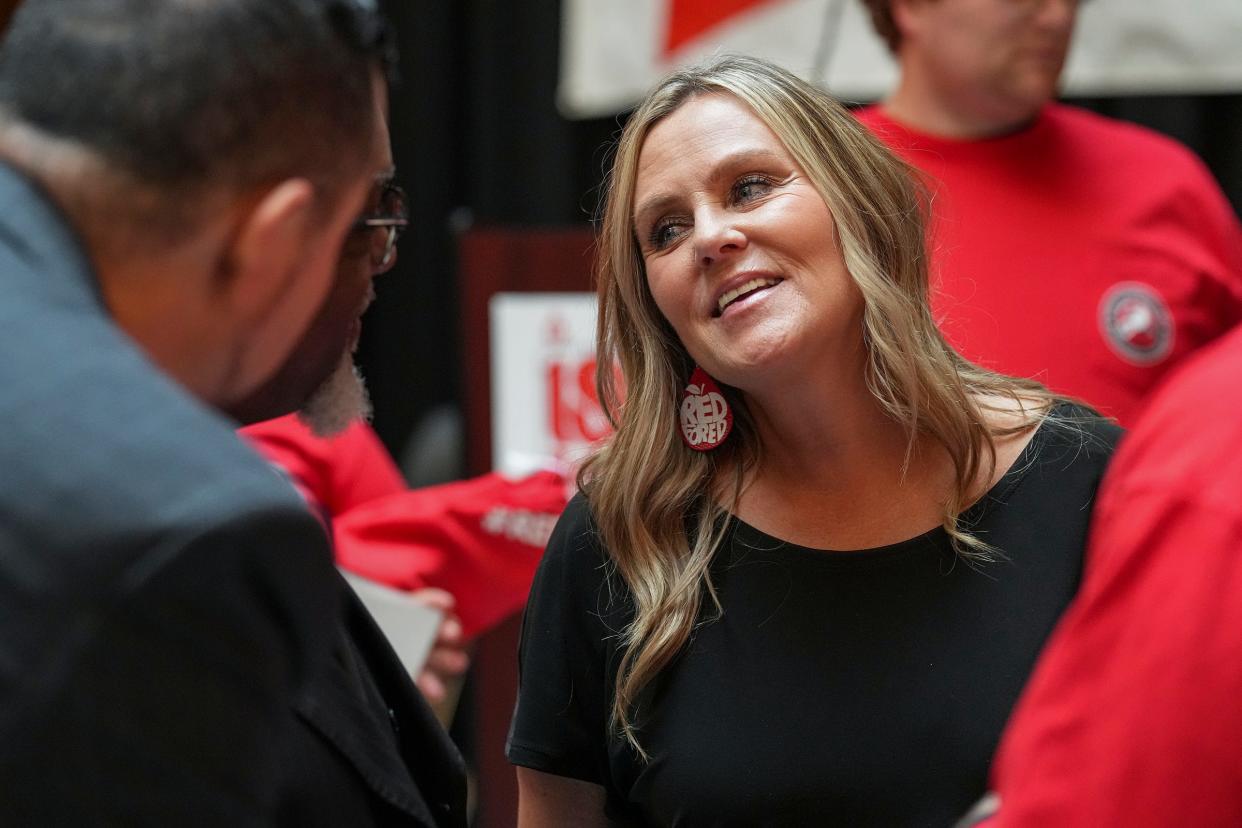Why is an Indiana school paying a gubernatorial candidate $144K in consulting fees?

For three consecutive years, the Monroe County Community Schools Corp. board has approved a $48,000 no-bid contract for Jennifer McCormick, Democratic candidate for governor.
Each time, the board approved the contracts on a recommendation by MCCSC Superintendent Jeff Hauswald. Each time, the board approved the contract unanimously.
Combined, the contracts will have paid McCormick, a former Republican state superintendent of public instruction, $144,000, for consulting work done over 24 days each year, at a daily rate of $2,000.

According to the board meeting agendas, Hauswald recommended the board hire McCormick’s company, Fierce Up! Leadership, “to develop a district-wide strategic plan” in each of the three years — though the corporation already had a recently adopted strategic plan in 2021.
Alexis Harmon, the district’s director of educational technology and communication, initially said via email that McCormick was helping MCCSC with its “first systemic strategic plan” in 15 years, but in a subsequent email corrected that to say that McCormick’s work was supporting the existing strategic plan.
The contracts themselves call for McCormick “to develop a district-wide strategic plan addressing student learning (including the achievement gap), operations, and organizational effectiveness.”
The Herald-Times on Oct. 10 filed a public records request to compel MCCSC to provide copies of the contracts, but as of Oct. 25, the administration had not fulfilled the request. The HT obtained copies of the contracts from a source within the MCCSC community.

One of the goals in the initial contract in 2021 was for McCormick to “develop an actionable strategic plan.” The second contract, in 2022, called for McCormick to “further develop the actionable strategic plan,” and the third contract, from this year, again called for McCormick to “develop an actionable strategic plan.”
While meeting agendas, Harmon's emails and the contracts refer to the district’s strategic plan, the systemic strategic plan and the actionable strategic plan, Harmon said in a subsequent email that McCormick was tasked with developing and later implementing the district's five-year strategic plan.
Harmon said McCormick "works with both the Board of School Trustees, the superintendent, district-level administrators, and building-level administrators both as a group, and in their individual schools with their teachers. Since this work involves student learning data that is protected under (the Family Educational Rights and Privacy Act,) the meetings would not be recorded nor would notes be available for public consumption."
MCCSC Board President Brandon Shurr referred questions to Harmon. He did not respond to a follow-up question seeking comment from him in his capacity as president of the board that approved the contracts.
The school district did not seek bids on the contract because, Harmon said, bids were not required under a state law that allows a government body to "purchase services using any procedure the governmental body or the purchasing agency of the governmental body considers appropriate."
However, the same section of state law, Title 5, requires at least three bids for purchases of at least $50,000. Each of McCormick’s contracts was for $48,000. At her daily rate of $2,000, one additional day of work would have pushed the contract above the bid threshold.
When asked why the district didn’t ask McCormick to do the work over 72 days in one year — rather than over 24 days in three successive years — Harmon said, “the scope of the work could not satisfactorily be done within 365 calendar days.”
According to the Indiana Secretary of State’s website, McCormick's company, Fierce Up, was created on Dec. 29, 2020, or about a half year before it got the first contract from MCCSC.
McCormick did not return a phone message. Her business does not appear to have a website.
Harmon said Hauswald recommend the board hire McCormick because, "When she was a local superintendent, she led a strategic plan for her district. This work continued at the state level when she was State Superintendent with the Indiana Department of Education’s strategic plan."
“As a former state superintendent of public instruction, district superintendent, principal and teacher, MCCSC administration is confident she has the qualifications necessary to facilitate this important work,” Harmon said.
Contracts paid with COVID relief dollars
Hauswald recommended MCCSC pay each of McCormick’s contracts with COVID-relief dollars, or the Elementary and Secondary School Emergency Relief Fund. The so-called ESSER funds were part of federal legislation the U.S. Congress passed in 2020 and 2021.
The 2020 Coronavirus Aid Relief, and Economic Security (CARES) Act included $13.2 billion in ESSER Funds, according to the U.S. Office of Elementary and Secondary Education. The 2020 Coronavirus Response and Relief Supplemental Appropriations (CRRSA) Act added another $54.3 billion in ESSER II funds, and the $1.9 trillion 2021 American Rescue Plan (ARP) Act provided $122 billion to the ARP ESSER fund.
The agency said the ESSER I funds, for example, are to be used to "address the impact that COVID-19 has had, and continues to have, on elementary and secondary schools across the nation. Funds must be used for allowable activities to prevent, prepare for, and respond to COVID-19."
ESSER budget examples on the Indiana Department of Education website include such items as additional staff, school buses for additional routes because of social distancing and upgrades for heating, ventilation and air conditioning systems. The budget examples do not mention consulting fees.
MCCSC received $25 million in ESSER funds, and according to a document on the district's website, MCCSC used/planned to use the dollars for technology preparedness, remediation, cleanliness/safety, transportation, air quality, vaccination reimbursement and accelerated learning. The document does not list consulting fees and help with strategic plan development or implementation.
Boris Ladwig can be reached at bladwig@heraldt.com.
This article originally appeared on The Herald-Times: Bloomington schools sign $144K contracts with Jennifer McCormick
